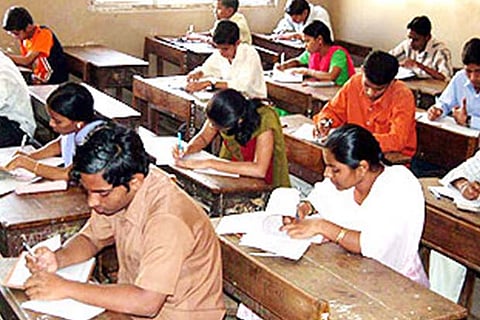

Chennai
Yet, there is a strategy that can be adopted by aspirants. As the examination gets closer, this methodology should also change. The last few moments are very crucial for the main examination, and those attempting to crack the premier service examination should be careful about the following important things.
Approaching the subject matter: Though aspirants will have to answer questions, the preparation should follow an ‘area approach’— that is, covering all possible dimensions of it. This way, it is easier to answer any question which may be asked related to the subject.
Expand the area:
By now aspirants get very ‘selective’ in their preparation—narrowed down to a few selective questions, areas or topics. However, such selective preparations should be done quite wisely. Also, at this stage of preparation, aspirants should get cover a wider section within the subject. Looking into some ‘offbeat’ points and likely questions arising out of those may save the day. Method of revision: As one gets closer to the exam date, an aspirant should opt for a revision process which is more tuned into ‘writing’ practice and opt less for ‘reading’ practice. For all practical purposes, by now aspirants should have undertaken writing practice for all the selected questions at least twice. As the exam gets closer, writing should be cut down and more time should be allotted to reading the notes. If the aspirant has notes made in ‘snippets’ format, nothing could be better.
Sustainable writing practice: Writing practice should be cut down by now but still around three hours of writing should be the daily norm. This helps to sustain a smooth flow in both, the pace and quality of handwriting. Aspirants should also use paper of similar quality and type (which is provided by the UPSC) for writing practice.
Handling pressure of delivering:
Aspirants are supposed to write around 4,000 words each paper which is not an easy task. This is why it is suggested they follow an ‘objective’ style of writing the answer. Wherever it is possible, it is advised to keep writing down ‘points’. By doing so, one can save time and be more informative. If the answer looks complete before reaching the 200 words mark, there is no need to extend the size—the answer should be concluded just there itself—180 to 185 words. If one is running out of time, in that case, there is nothing wrong concluding the answer by 150 to 160 words. Remember, content matters more than the size.
Sleep, food, water and breathing exercise: It is never advisable to keep toiling whole night and burning the midnight oil. It is always better to use the day time for study, thereby being in sync with the natural clock of your body. Light and nutritious food, ample intake of water and deep breathing helps one keep the pre-exam pressure under control and infuses positive energy.
In the examination hall:
It is quite essential to regulate oneself in the examination hall. A few tips have been found to be quite helpful—no question is easy and never start answering without getting clarity about the ‘central idea’ of the questions; (read them repeatedly to find it); go into the examination hall only after drinking enough water—it helps. Also, keep sipping water throughout the paper; it will give your mind a little break and help sharpen your focus, and answer the question better. These tips should be used wisely as per the need. Also, keep taking deep breaths throughout the examination, every half hour or so. Such a practice will help calm your mind and also keep you alert.
Wishing all the very best for your forthcoming mains.
— The writer has over two decades of experience in mentoring civil services aspirants. He has authored several books for the McGraw Hill Education India— Indian economy (in Hindi also) and Contemporary essay. Presently, he is working on a McGraw Hill Education India title—’Economics for all Exams’.He is a popular columnist of the reputed journals Yojana and Kurukshetra. A Delhi School of Economics alumnus, Singh lives in Delhi.
Visit news.dtnext.in to explore our interactive epaper!
Download the DT Next app for more exciting features!
Click here for iOS
Click here for Android